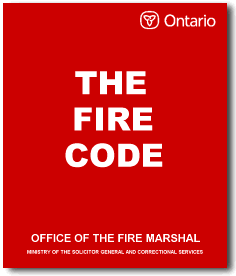
Accessory Dwelling Units can contain some dire pitfalls for a new owner and anyone involved in the sale of such a unit. It’s one more thing to be concerned about, because the consequences of having an apartment declared illegal or closed down can be disastrous.
Any separate unit with its own cooking, eating, sleeping, and sanitary facilities in a detached or semi-detached house or row house is classified as an “accessory dwelling unit”. It doesn’t matter whether it’s a basement apartment for rent or a unit to accommodate a family member or a nanny.
In Ontario it’s been a roller coaster ride for homeowners in recent years. In 1994 the New Democratic government changed the law so that municipalities could no longer ban basement apartments. In May of 2001 the Conservative government reversed the rules and it’s expected that many cities will once again use zoning controls to block new accessory dwellings in the years ahead.
Strict fire regulations are now in effect, and any existing apartments that were occupied in November of 1995 are permitted – as long as they meet the new fire code. There’s also a new registry system, so officials can monitor compliance – and new penalties that are stiff enough to take seriously (fines of $25,000 or a year in the slammer!).

Before closing deals involving a basement apartment or duplex, triplex, or any other multiple dwelling, purchasers should ensure that they have obtained written confirmation of whether or not apartments are registered, and have been inspected and found to conform to the fire code.
To get an accessory dwelling unit certified in Ontario requires inspections by the local Fire Department and by the Electrical Safety Authority and possibly another by a local Ontario Building Code Official. In most cases, at least some renovations or repairs are required. Even if no renovations are needed to meet the fire code, fees alone can be a few hundred dollars.
Some areas of the Ontario Fire Code Retrofit Section 9.8 can be difficult to address, especially if the apartment was added as an afterthought in a typical home. For example, ceiling tiles and wood paneling in a basement apartment may be combustible and not meet with current requirements. These items may have to be removed or covered and owners are sometimes ordered to install a sprinkler system.
Fines and other legal consequences of not meeting the law are just the most obvious problems facing an owner of a unit that is not certified. Having to toss the tenant out is also obvious. But consider that insurance coverage or insurance claims may be denied, mortgages may be denied or nullified, and a tenant that is injured may have grounds for a civil suit.